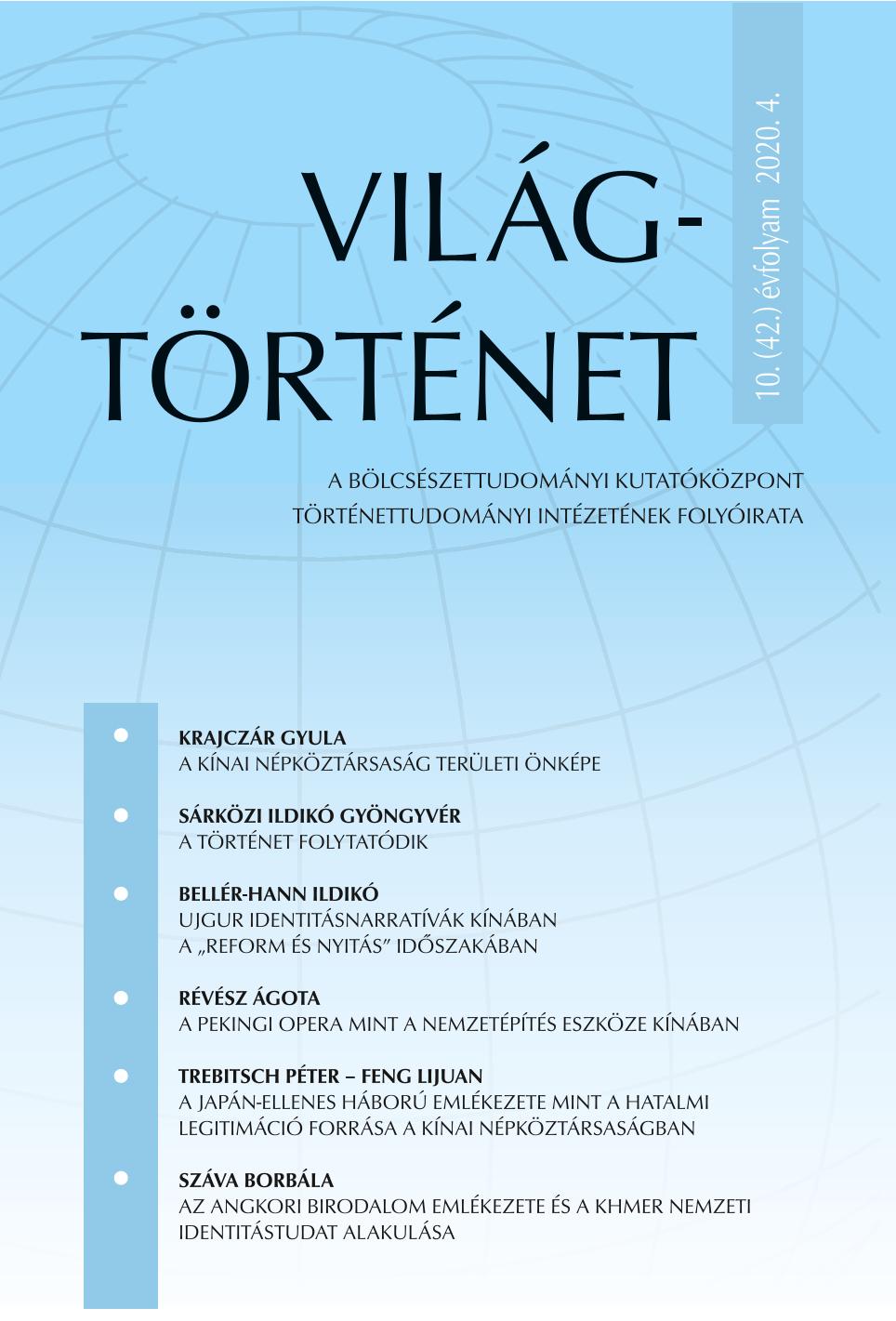Ujgur identitásnarratívák Kínában a „reform és nyitás” időszakában
Uyhgur Identity Narratives in China in the Reform Period
Author(s): Ildikó Bellér-HannSubject(s): Recent History (1900 till today)
Published by: Magyar Tudományos Akadémia Bölcsészettudományi Kutatóközpont Történettudományi Intézet
Summary/Abstract: During the reform period that began in the late 1970s, the Chinese state has employed diverse strategies toward the Turkic speaking Muslim Uyghurs, an officially recognized ethnic minority concentrated in the far northwest of the country. These have ranged from affirmative action and large-scale development projects to censorship, surveillance and, since 2016, unprecedented suppression including mass incarcerations and brutal political re-education campaigns. As a result of the current tensions, many details of the history of the Xinjiang Uyghur Autonomous Region are contested. Although it has never been possible under socialism to challenge the main tenets of state-sponsored, nationalist historiography, Uyghur knowledge production continued to bolster indigenous collective identity vigorously until the mid-2010s. In addition to fiction and academic publications in fields such as archaeology and ethnography, numerous authors explored Uyghur history; their works reached large readerships. The present article derives from a research project that investigates the narrative strategies deployed by Uyghur authors in the reform period on the basis of selected examples. It demonstrates how Uyghur literati positioned themselves both during the years when they enjoyed relative freedom to research and cultivate their ethnic identity, and also in recent decades as the space for such activities has continuously narrowed. The general conclusion is that indigenous historical knowledge production under authoritarian conditions has to be interpreted in the temporal context of complex entanglements of power, knowledge and identity construction among both dominant group and indigenous minority.
Journal: Világtörténet
- Issue Year: 2020
- Issue No: 4
- Page Range: 559-579
- Page Count: 21
- Language: Hungarian

